The Future of Autonomous Dining: Exploring the Unmanned Coffee Shop Revolution
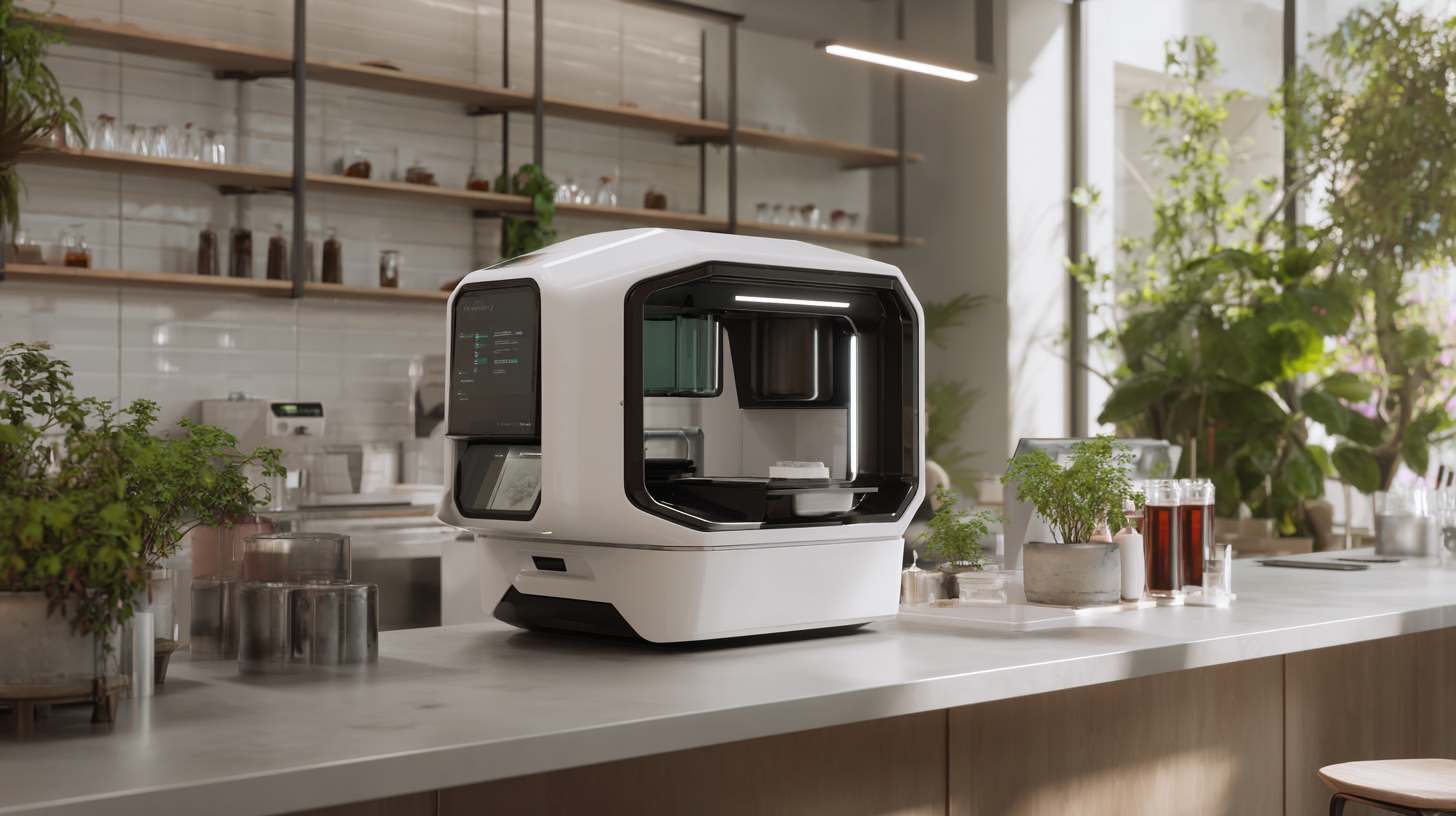 As the world embraces technological advancements, the concept of the "Unmanned Coffee Shop" is revolutionizing the dining and beverage industry. According to a report by Market Research Future, the global automated coffee machine market is projected to reach $5 billion by 2025, indicating a growing preference for convenience and efficiency among consumers. This shift is not just limited to coffee; it reflects a broader trend where automation and artificial intelligence are increasingly integrated into everyday experiences. With benefits such as reduced labor costs, enhanced customer satisfaction, and operational efficiency, unmanned coffee shops are not only meeting consumer demands but also paving the way for a new retail model. By providing a contactless and customer-centric environment, these establishments exemplify how technology can transform traditional dining experiences and adapt to the fast-paced lifestyles of modern consumers.
As the world embraces technological advancements, the concept of the "Unmanned Coffee Shop" is revolutionizing the dining and beverage industry. According to a report by Market Research Future, the global automated coffee machine market is projected to reach $5 billion by 2025, indicating a growing preference for convenience and efficiency among consumers. This shift is not just limited to coffee; it reflects a broader trend where automation and artificial intelligence are increasingly integrated into everyday experiences. With benefits such as reduced labor costs, enhanced customer satisfaction, and operational efficiency, unmanned coffee shops are not only meeting consumer demands but also paving the way for a new retail model. By providing a contactless and customer-centric environment, these establishments exemplify how technology can transform traditional dining experiences and adapt to the fast-paced lifestyles of modern consumers.
Innovative Technologies Transforming the Coffee Shop Experience
The coffee shop experience is undergoing a radical transformation, driven by innovative technologies that aim to enhance operational efficiency and customer satisfaction. As consumers increasingly seek personalized experiences, coffee shops are leveraging AI and automation to meet these expectations. Reports indicate that 72% of customers prefer businesses that utilize technology to improve their experience, prompting owners to adopt smart solutions such as AI-powered ordering systems and robotic baristas that can brew coffee with precision, ultimately reducing wait times and improving product quality.
Moreover, the integration of augmented reality (AR) in coffee shops is set to evolve customer engagement. By allowing customers to visualize customizations or explore the origin of their coffee through immersive experiences, AR technology elevates the overall ambiance of the coffee shop. The need for such innovations is paramount, as the retail landscape indicates a growing emphasis on creating engaging and interactive environments. With 67% of consumers stating that the in-store experience is a crucial factor in their purchasing decisions, the ability to blend technology with traditional coffee culture creates an enticing "Third Space" that invites customers to linger longer and engage more deeply with the brand.
Designing an Autonomous Coffee Shop: Layouts and Customer Flow
As the unmanned coffee shop revolution gains momentum, designing an effective layout that maximizes customer flow becomes paramount. According to a recent report by Allied Market Research, the global automated coffee machine market is projected to reach $1.1 billion by 2025, highlighting the growing interest in automation within the food and beverage sector. In autonomous coffee shops, the layout should be intuitive, allowing customers to easily navigate their experience, from ordering to pickup. A streamlined design featuring clear pathways and strategically placed kiosks can enhance the customer journey, reducing congestion and improving overall satisfaction.
To further optimize customer flow, integrating innovative technologies is essential. For example, using artificial intelligence to predict peak hours can inform staffing decisions, ensuring that the unmanned café operates efficiently during busy times. A study by Frost & Sullivan suggests that incorporating digital interfaces into the ordering process can increase order accuracy by up to 30%. By thoughtfully designing the coffee shop's layout and leveraging technology, operators can not only cater to rising consumer expectations but also position themselves at the forefront of a rapidly evolving industry.
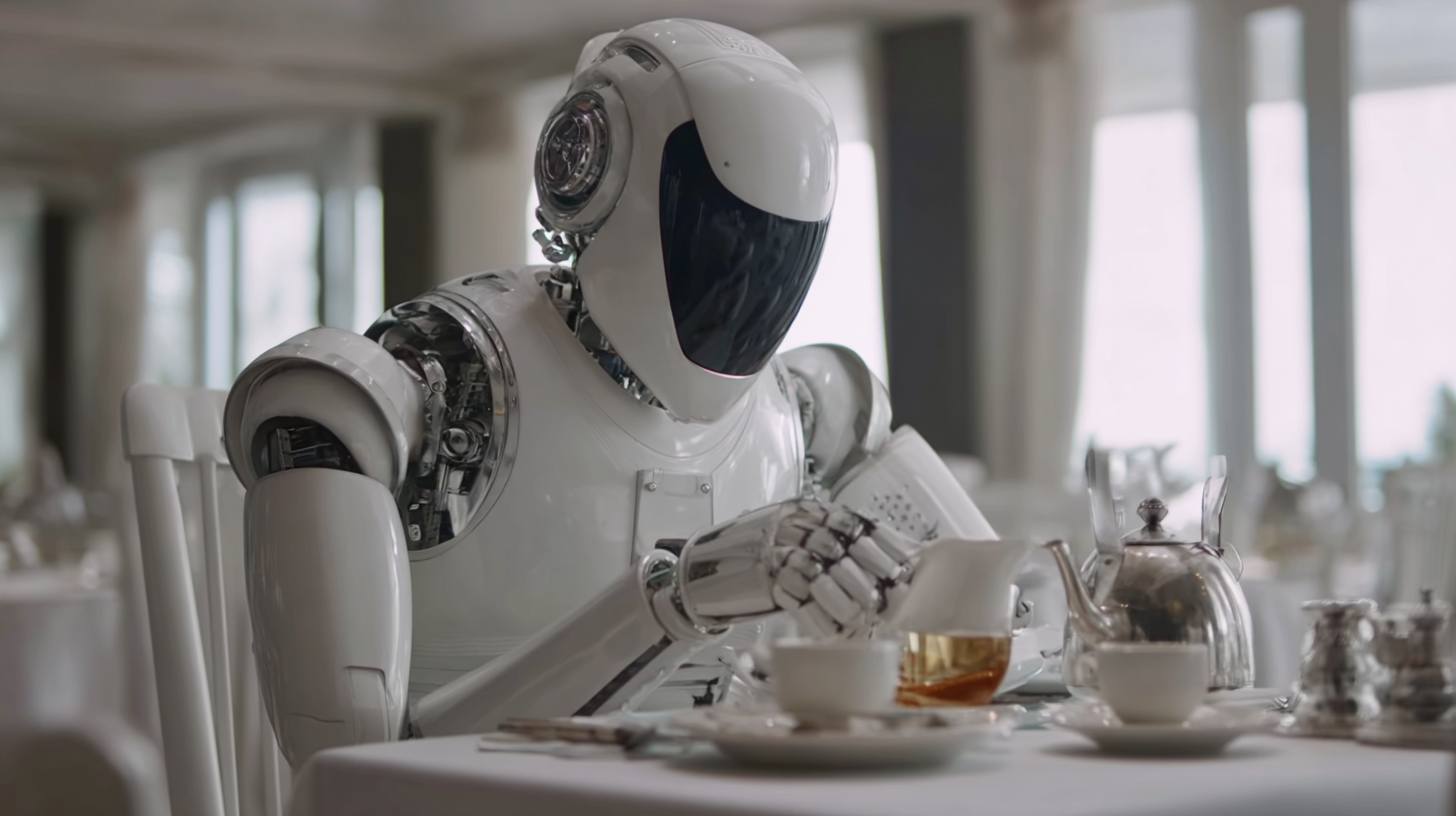
Enhancing Consumer Engagement through Digital Interfaces
As the unmanned coffee shop revolution takes center stage, enhancing consumer engagement through digital interfaces becomes crucial. Digital platforms allow customers to interact seamlessly with their environment, enabling personalized experiences. The evolution of human-computer interaction highlights a shift towards more intelligent and personalized interfaces, moving from basic command-line systems to sophisticated conversational interfaces. This transformation is exemplified by advanced dialogue systems that enhance how consumers engage with automated services, aligning with the growing demand for convenience and efficiency.
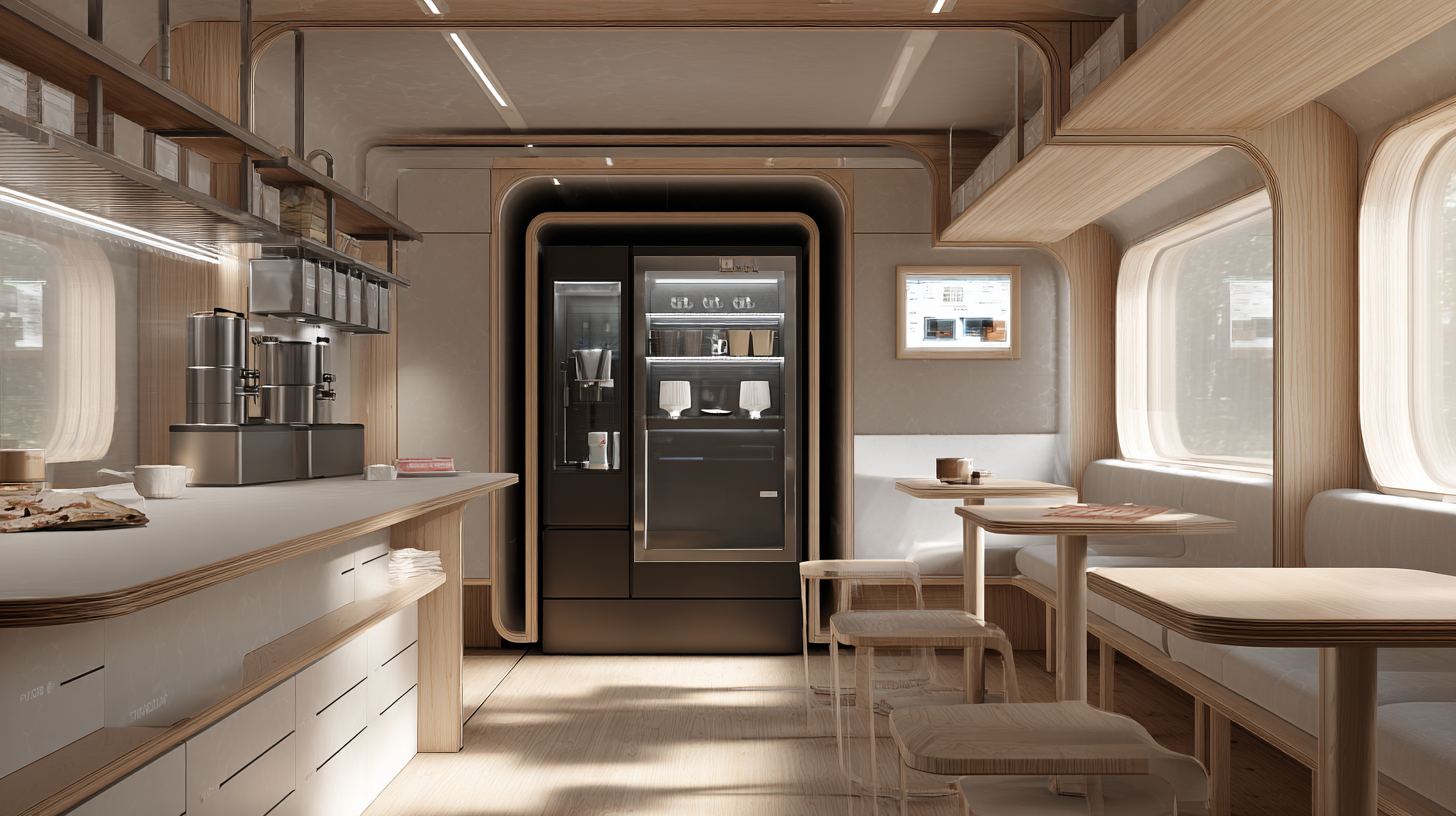
Data from industry reports suggest that the AI-assisted application market is projected to reach $14.1 billion by 2024, with a compound annual growth rate (CAGR) of 26.8% anticipated from 2025 to 2034. This growth reflects a larger trend in consumer preferences, where personalized, digitally driven experiences in spaces like unmanned coffee shops are becoming the norm.
Tips: To maximize engagement in an unmanned coffee shop, consider integrating user-friendly apps that allow for customizable orders and payment options. Additionally, employing AI-driven recommendations can enhance the customer experience by suggesting products based on previous choices, leading to increased customer satisfaction and loyalty.
Sustainability and Efficiency in Unmanned Coffee Operations
The unmanned coffee shop revolution is reshaping the way we enjoy our favorite brews by focusing on sustainability and efficiency. With the rise of automation, these coffee shops are designed to minimize waste and optimize resources. For instance, many establishments are adopting solar energy to power their machines and using recyclable materials for cups and packaging. By reducing the carbon footprint and operating costs, these shops not only benefit the environment but also pass savings on to consumers.
When considering visiting an unmanned coffee shop, here are a few tips to enhance your experience. First, make sure to check if the shop uses locally sourced ingredients, as this supports local farmers and reduces transportation emissions. Next, look for options that allow you to customize your drink using eco-friendly ingredients. Finally, take advantage of loyalty programs that incentivize reusable cups, fostering a more sustainable drinking culture.
As efficiency becomes paramount, these unmanned coffee operations are implementing advanced technologies like AI and IoT to streamline processes. This not only speeds up service but also ensures consistency in product quality. As more consumers become aware of their ecological impact, the demand for sustainable practices will drive innovation in the unmanned coffee sector.
The Future of Autonomous Dining: Unmanned Coffee Shop Efficiency
This chart illustrates the efficiency improvements observed in unmanned coffee shops over the past few years. The data highlights the reduction in operational costs, increased customer satisfaction, and enhanced sustainability practices in these automated establishments.
Future Trends: From Coffee to Full-Service Autonomous Dining
The evolution of autonomous dining is gaining momentum, transitioning from simple coffee shops to more complex full-service dining experiences. According to a recent report by the National Restaurant Association, 60% of consumers expressed interest in dining at a fully automated restaurant, highlighting a growing acceptance of technology in our food service industry. Autonomous coffee shops, like those launched by companies such as Starbucks and eatsa, have already set the stage, enabling customers to place orders through apps or kiosks, thus streamlining the experience and reducing wait times.
Looking ahead, a Market Research Future study predicts that the global smart restaurant market will reach $4 billion by 2025, driven by advances in artificial intelligence and robotics. This shift allows restaurants to operate with lower overhead costs and increased efficiency, freeing up staff to focus on customer service rather than routine tasks. As the implementation of automation technology continues to improve, we can anticipate a future where dining experiences are not only convenient but also personalized through data analysis and machine learning, allowing for an unprecedented level of customization in menu offerings and service styles.
The Future of Autonomous Dining: Exploring the Unmanned Coffee Shop Revolution
| Trend | Description | Expected Impact | Implementation Year |
|---|---|---|---|
| Self-Service Kiosks | Automated kiosks for ordering and payment without human interaction. | Reduced wait times and increased customer satisfaction. | 2024 |
| Robotic Baristas | Robots designed to prepare and serve coffee with precise recipes. | Consistent product quality and reduced labor costs. | 2025 |
| Mobile Ordering Apps | Apps allowing customers to place orders ahead for pickup at unmanned locations. | Enhanced convenience and streamlined service. | 2023 |
| AI-Driven Inventory Management | Systems that predict beverage demand and manage supplies autonomously. | Minimized waste and optimized inventory costs. | 2026 |
| Social Interaction Robots | Robots designed to engage with customers while serving food and drinks. | Enhanced customer experience through interaction. | 2027 |
Related Posts
-
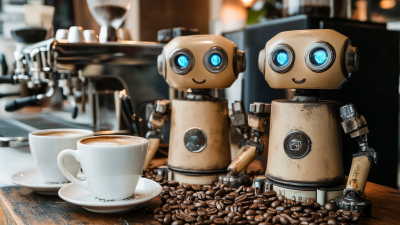
Global Robotics Coffee Bar Growth Insights 2024 Top Import Export Certifications You Need to Know
-
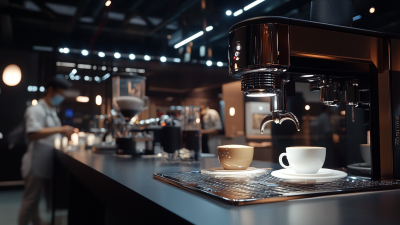
Revolutionizing the Coffee Experience at the 2025 Canton Fair with Automatic Coffee Shop Innovation
-

The Ultimate Guide to Finding Quality Suppliers for the Best Unmanned Coffee Shop Solutions
-
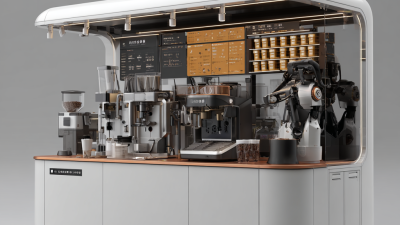
Elevating Global Standards: The Rise of China's Best Robot Coffee Kiosk in the International Market
-
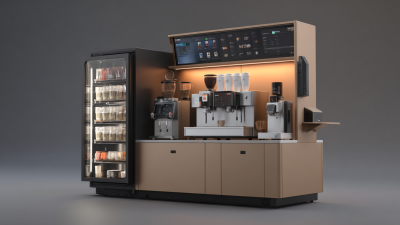
How to Choose the Best Automated Coffee Kiosk for Your Business Needs
-
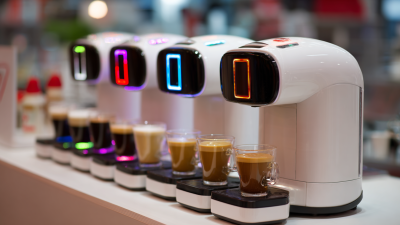
How to Choose the Perfect Robot Barista for Your Coffee Business
